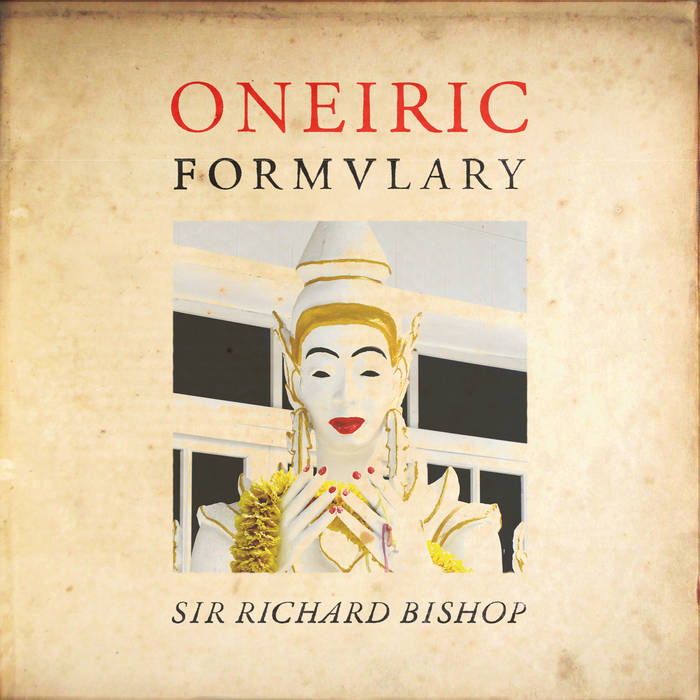 Oud, Lute, acoustic guitar, or lap steel guitar? While my musical knowledge is varied, my ear is not trained to pick out the many instruments used or mimicked by Bishop. He makes guitars sound like any of these aforementioned instruments, at any point in time, with practiced fingers and the equivalent musical knowledge of a library with every note he plays, a master guitarist proficient in a variety of guitar techniques and knowledge of music traditions. His latest album excels in his freer use of experimentation with theme and electronics, crafting a "dream pharmacy" as the title implies.
Oud, Lute, acoustic guitar, or lap steel guitar? While my musical knowledge is varied, my ear is not trained to pick out the many instruments used or mimicked by Bishop. He makes guitars sound like any of these aforementioned instruments, at any point in time, with practiced fingers and the equivalent musical knowledge of a library with every note he plays, a master guitarist proficient in a variety of guitar techniques and knowledge of music traditions. His latest album excels in his freer use of experimentation with theme and electronics, crafting a "dream pharmacy" as the title implies.
His previous releases have been focused on exploration of a particular genre. The Freak of Araby was a carefully crafted homage to late Egyptian guitarist Omar Khorshid, while the tracks on Tangier Sessions explored the sounds of a C. Bruno guitar from the 19th century that Bishop purchased in Morocco. For Oneiric Formulary, he further expands his already impressive repertoire of styles (Indian Raga, flamenco, surf, baroque, and many others) to craft an "oneiric" feel throughout. He takes turns adding unlikely sounds in the way of electronics that hum behind acoustic guitar, switching to near pop-embellished tunefulness, then leads the listener into nightmare visions in the very next track. Bits of drone experimentation are strewn throughout and unique synthesized sounds diverge from the usual guitar fare.
One such example of Bishop straying from his guitar is found on the opening tracks, "Call to Order." The shortest track of the batch, it kicks off the album with a mild nightmarish feel, or if you'd prefer, David Lynchian dreams, provided by an alien, synthesized theremin. "Celerity" goes back into more familiar territory and showcases Bishop's practiced dexterity, while "Mit's Linctus Codeine Co." sounds like an imaginary soundtrack to a film an alien cantina, or hold music at your local small town grocery store. "Renaissance Nod" is precisely that, a nod to what you might hear a minstrel playing at a Renaissance Faire. It isn't until "Graveyard Wanderers" that Bishop fully takes us into Tim Burton electronic territory, creating an auditory backdrop of rattling chains, dripping water and tortured souls, all of which may or may not have guitar as their original foundation.
"Dust Devils" is a catchy tune reminiscent of bagpipers in the Scottish highlands backed by tabla or djembe. The immediate standout track is "Enville," a pleasant acoustic track worthy of everyone's ears, one of his most melodic and memorable to date, that showcases his obviously practiced fingerpicking. "Black Sara" reminds me of a Spanish film. "The Coming of the Rats" is a wonderful interplay of electric and acoustic guitar, with acoustic guitar forming the baseline, and the electric guitar adding complexity, and seems to tell a story. Closing track "Vellum" concludes the album with a waltzy feel with scattered time signatures.
Dreams don't always make sense. They are not always logical, and can jump from storyline to storyline. Much is the same with this album, and Bishop is always mindful of the varied nature dreams can take. It is a journey of pleasant valleys, dangerous peaks and subterranean nightmares, all on the same album.
Read More

